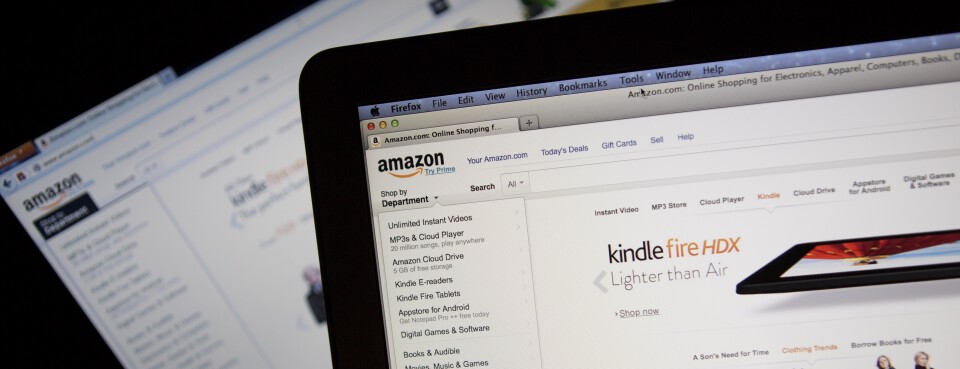Amazon.com Trial to See Webpage Copyright Grapple With 1976 Law - Bloomberg Law

Amazon.com Inc. is heading to trial to defend against a furniture website provider’s copyright infringement accusations in a case that tests the application of a pre-internet law to modern technology.
In its lawsuit, FurnitureDealer.Net Inc. said it had a copyright over product descriptions it created for furniture wholesaler Coaster Company of America’s website. Amazon “scraped” hundreds of those descriptions from Coaster’s website and put them on its own online retail platform, infringing FurnitureDealer.Net’s copyright, according to the suit.
One of several questions that a Minnesota federal jury must decide is whether FurnitureDealer.Net’s copyright is invalid because the descriptions were already “published,” as defined by the Copyright Act of 1976. They previously appeared on Coaster webpages that featured “Print this Page” buttons, which arguably weigh in favor of “publication.” But that contention could be countered because the same pages also contained language restricting use of the furniture descriptions.
Attorneys say this website “publication” issue is an unresolved legal problem that’s appearing in more copyright cases.
It’s also a “frustrating” one because it’s a “huge legal undertaking to try to answer a question” that doesn’t have any true relevance to the copyright itself, attorney Pamela Chestek of Chestek Legal said.
Representatives for Amazon didn’t respond to requests for comment. One of FurnitureDealer.Net’s lawyers, Christopher Larus of Robins Kaplan LLP, declined to comment on a pending case.
‘Larger Problem’
In sending the publication issue to a jury, U.S. District Judge John Tunheim observed that no courts in the Eighth Circuit—the tribunal that hears appeals from federal courts in Minnesota and six other Midwestern states—have addressed the question posed by the Amazon case.
“Neither party cites to case law that has squarely addressed the factual circumstances before the Court, nor has the Court found a case on point,” Tunheim wrote in a March 25 ruling denying summary judgement on the issue. “Thus, the Court is left with little guidance.”
Tunheim said the case is “emblematic of a larger problem” where the Copyright Act “struggles to address the nuances and novelty that can arise at the intersection of copyright law and technology.”
In prior cases involving the posting of music files and photographs on websites, he said courts have ruled that publication occurs when internet users can “download a file containing copyrighted work and thereby gain control of it.”
He wrote, however, that the U.S. Copyright Office has issued guidance stating that a work may remain “unpublished” if the copyright owner “has reserved copyright rights in the work or has explicitly prohibited reproduction or distribution of the work.”
Neither existing case law or federal guidance directly address the situation presented in Amazon’s case—where the product descriptions appeared with a “Print this Page” button and language stating: “Nothing on this page may be copied or reproduced without explicit permission.”
Daniel M. Cislo of Cislo & Thomas LLP, an attorney for Coaster, said content on a web page “should be viewed” as a publication. Coaster is also a defendant in the case.
“Copyright law needs to catch up with the reality that when something is put out for public viewing and dissemination, particularly when you put on the page, ‘print this’ or send this to somebody,” that it counts as a publication, Cislo said.
Rising Cases
The U.S. Copyright Office has seen an increase in cases raising the issue of published versus unpublished webpages, Suzanne Wilson, the agency’s general counsel and associate register of copyrights, said at an American Bar Association conference on April 7.
She said the office is tracking the cases to see if there will be a decrease following the U.S. Supreme Court’s February decision in Unicolors v. H&M Hennes & Mauritz LP.
In that 6-3 ruling, the justices held that a copyright registration with legal or factual mistakes may remain valid if the copyright owner didn’t actually know there were inaccuracies in the registration.
That ruling could help save copyright registrations for webpage content described as “unpublished,” but later challenged as invalid because of earlier “publication.”
It also could play a role in the Amazon dispute if the online retailer attempts to argue at trial that FurnitureDealer.Net intended to defraud the Copyright Office by stating on its copyright registration that the furniture descriptions were “unpublished.”
Jury to Decide
Some attorneys questioned whether a jury will be able to adequately address the publication issue in the Amazon case, which also presents questions about the amount of damages at stake. Amazon and FurnitureDealer.Net disagree on whether each allegedly illegal use of a furniture description should count as a separate violation.
“I don’t see how a jury is in any better capacity to determine something that no one else can,” Mark Jaffe, managing partner at TorMarkLaw, said. “You’re going to send something to a jury, but a jury doesn’t spend decades and years studying, can’t do research, and has just been told to make any decisions better than everybody else.”
He expressed concern over the uncertainty of copyrights for webpage content and how that affects companies and people applying for registrations.
“If the court doesn’t know and nobody knows, when someone’s applying to register a copyright, it’s impossible to make any kind of decision that would make you feel safe and secure that it’s not going to be contentious,” Jaffe said.
source: https://news.bloomberglaw.com/ip-law/amazon-com-trial-to-see-webpage-copyright-grapple-with-1976-law
Your content is great. However, if any of the content contained herein violates any rights of yours, including those of copyright, please contact us immediately by e-mail at media[@]kissrpr.com.

